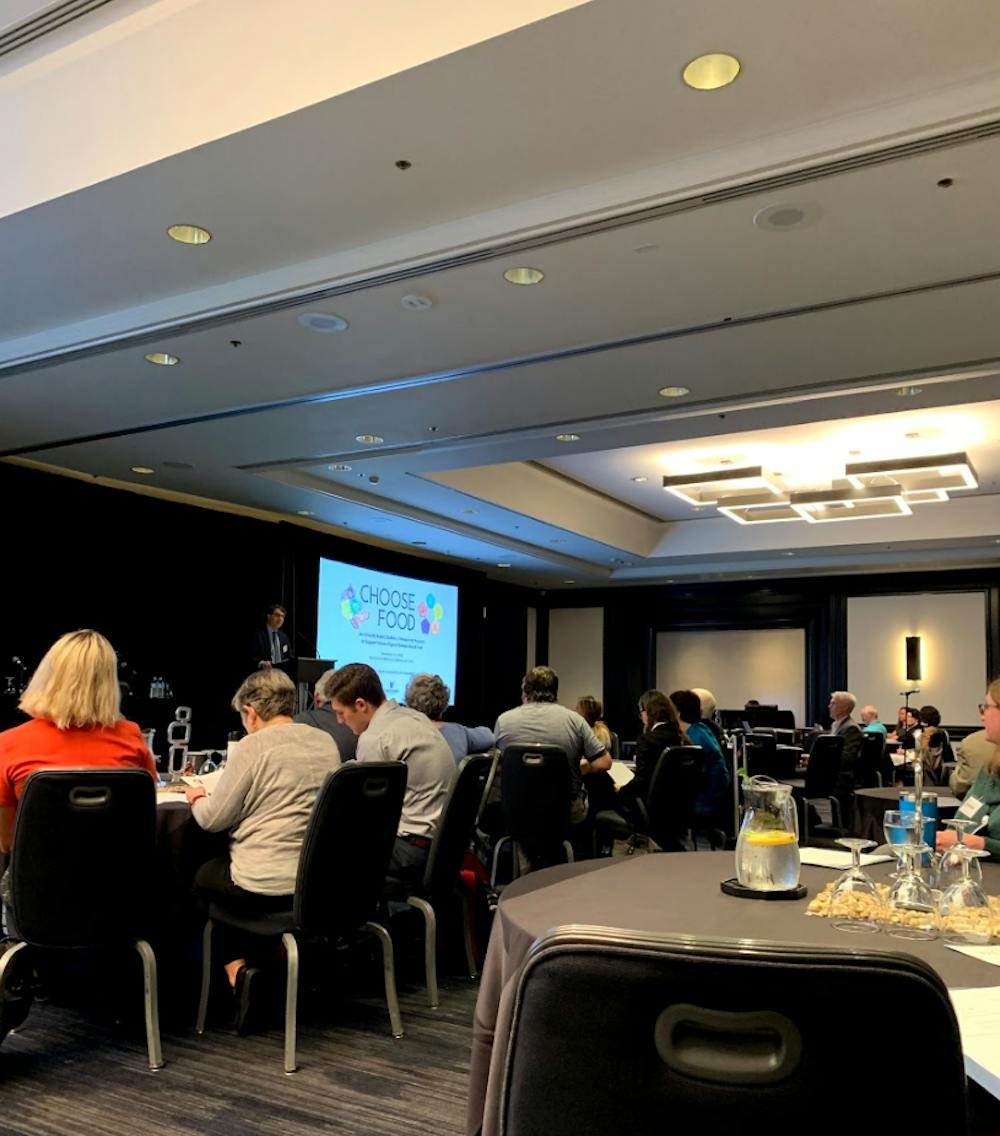Several well-known agricultural, public health and bioethics researchers attended the Choose Food Symposium this week. The symposium was an initiative of the Global Food Ethics and Policy Program of the Bloomberg School of Public Health and Berman Institute of Bioethics. It intended to explore various ethics concerns within the fields of food and agriculture.
Jeffrey Kahn, director of the Berman Insitute, highlighted why it is important to talk about food.
“Food is at the center of so much of human life and existence and helps to define our cultures and traditions,” Kahn said.
Alan Goldberg, a professor of toxicology at the Bloomberg School of Public Health and one of the directors of the Berman Institute’s Global Food Ethics and Policy Program, gave an introduction to the Symposium by launching into an overview of the many purposes of the Choose Food initiative.
“Choose Food is an ethically-based, radically-transparent program,” Goldberg said.
The Choose Food initiative aims to provide consumer and producers with greater access to information about their food in order to promote ethical consumption. Currently, the project has created a list of 49 core commitments which are intended to outline ethical conduct and goals for the improvement of food products.
These commitments are divided into five categories: Environment & Resources; Food Chain Labor; Farmers, Ranchers and Fishers; Public Health & Wellbeing; and Animal Welfare.
Goldberg elaborated on some of the ethical arguments that surround food.
“While it’s uncontroversial that food’s at the core of much of our lives, we... argue over what food is healthy for us and the planet, which foods are safe, and which are too risky or just culturally unacceptable,“ Goldberg said.
Hinting toward practices of sustainable farming methods, Goldberg noted that people still are unsure of exact methods to apply on a larger scale.
“There are ethical questions and ethical implications that follow these aspects of humankind’s relationship with food,” he said.
Another speaker at the event, Jessica Fanzo, the senior nutrition and food systems officer at the United Nations (UN) Food and Agriculture Organization, spoke about balanced diets around the world.
“Most of the world is not consuming enough of these healthy foods on a daily basis,” she said.
Fanzo also addressed the overarching issue of this being a progressing trend.
“The overall dietary pattern is not going in the right direction,” she said.
Fanzo described a few ways in which our diets are not sustainable for a healthy global population.
“Our diets are transforming in inequitable ways with urbanization, with globalization and economic growth — as countries urbanize, they tend to get fatter, people become more sedentary,“ she said. “You see this shift in epidemiology going from undernutrition to overweight and obesity, and lifespan may increase, but disability also increases.”
People in wealthy and urbanized countries eat too much red meat, leading to higher risk of cardiovascular disease and other non-communicable diseases, according to Fanzo.
Fanzo noted that people in developing countries, however, tend to not eat enough, because of monetary impediments. And while people in Mediterranean countries tend to take in enough Omega-3s, due to their high consumption of seafood, most other people around the world suffer from a lack of these essential fatty acids.
Fanzo further stated that, in a number of African and Middle Eastern countries, consumers spend between 35 and 55 percent of their income on food expenditures, compared to developed countries in Europe and North America, where consumers tend to spend between six and 12 percent.
According to Fanzo, there is no one simple measure to solving the world’s food issues, but the people behind Choose Food hope that their program is a step towards recognizing and alleviating some of these issues.
To shift diets globally, a wide array of organizations must come together to overcome barriers, Fanzo said. Governments must create a supportive political environment and donors need to invest in food systems.
“[The private sector] must share power across food systems and prioritize health and environment,“ Fanzo said.
She argued that there are solutions to combat a growing population rate in a sustainable way. Fanzo further stated that it would take international action in order to ensure that people practice these healthy agricultural methods.
“If they want to have a population that can still buy their products and a planet that still provides commodities,” she said.
In addition to the Core Ethical Commitments and the symposium, Choose Food, in partnership with the Hopkins University Press, is releasing two books, one covering the proceedings of the symposium and the other a consumer-oriented guide to ethical decision making about food. In the long-term, Goldberg says that he hopes Choose Food may release a certification mark, similar to that used to denote organic or fair-trade products.





